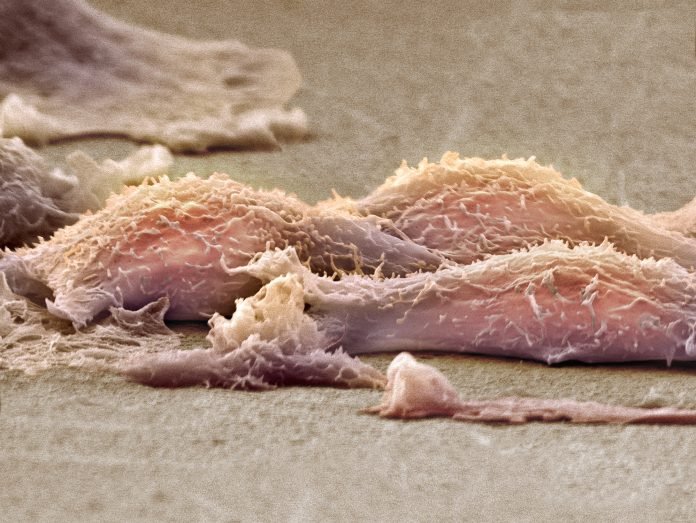
A new study identifies several new genetic mechanisms linked to aggressive cases of Ewing sarcoma, including some not previously identified genes. These mechanisms promote metastasis and lead to a poorer prognosis.
The team integrated gene expression data from patients and cellular models of Ewing sarcoma to identify a gene signature associated with worse prognosis. Their findings expand the list of potential prognostic markers and therapeutic targets in the most aggressive cases of Ewing sarcoma.
The paper appears in EMBO Reports. The work was led by Ana Losada, PhD, head of the Chromosomal Dynamics Group at Spain’s National Cancer Research Centre (CNIO).
Ewing sarcoma is a tumor of the bones and soft tissues that occurs in children and young people. Like all childhood cancers, it is rare—nine to ten to 10 cases per million inhabitants per year—but it is very aggressive. 25% of patients do not respond well to regular therapy and they often experience relapses.
Losada told Inside Precision Medicine the most typical treatment regimen is “Systemic chemotherapy in conjunction with surgery and/or radiation therapy for local tumor control. Current chemotherapy treatment includes vincristine, doxorubicin, and cyclophosphamide (VDC), alternating with ifosfamide and etoposide (IE) or VDC/IE.”
This new finding by Losada and her team opens up new avenues for new treatments, since it “provides a list of potential [prognosis] biomarkers and therapeutic targets,” the authors wrote.
Ewing sarcoma is caused by the abnormal fusion of two genes, which results in an oncogene. The protein produced by this oncogene causes the expression of genes that promote tumor development. It was already known that the absence of a protein known as STAG2 amplifies the harmful effect of this oncogene, but the new study now shows that there are also alterations in the expression of many other genes.
Ana Cuadrado, PhD, corresponding author of the study, explains that the absence of the STAG2 protein “also modifies the expression of other genes that do not depend on the oncogene, and these changes also increase tumor aggressiveness.”
STAG2 is part of a complex of proteins essential for life, cohesin, discovered in vertebrates by Losada in the late 90s. Cohesin is key in cell division and during the process of reading gene expression. It is the ring that binds the chromosomes together at the center when duplication occurs during cell division.
When the cell is not dividing, cohesin generates bonds that help the DNA to fold and acquire the appropriate spatial arrangement, which is important for the information of the genes to be correctly read.
This EMBO Reports paper shows that when cohesin STAG2 is missing, DNA folds incorrectly, causing failures in the expression of many genes.
“The cohesin that carries STAG2 moves along the DNA forming bonds that facilitate physical contact between elements that control the reading of many genes; if it disappears, gene expression becomes more difficult,” said Losada. “The cells survive, but with many aberrations that turn them more aggressive.”
She tells Inside Precision Medicine: “We are currently exploring whether STAG2 mutations affect the ability of Ewing sarcoma cells to escape the immune system and whether they facilitate the acquisition of resistance to chemotherapy. We also work on the identification of drugs that can revert the increased migration/invasion capabilities of STAG2-mutant Ewing sarcoma cells.”





